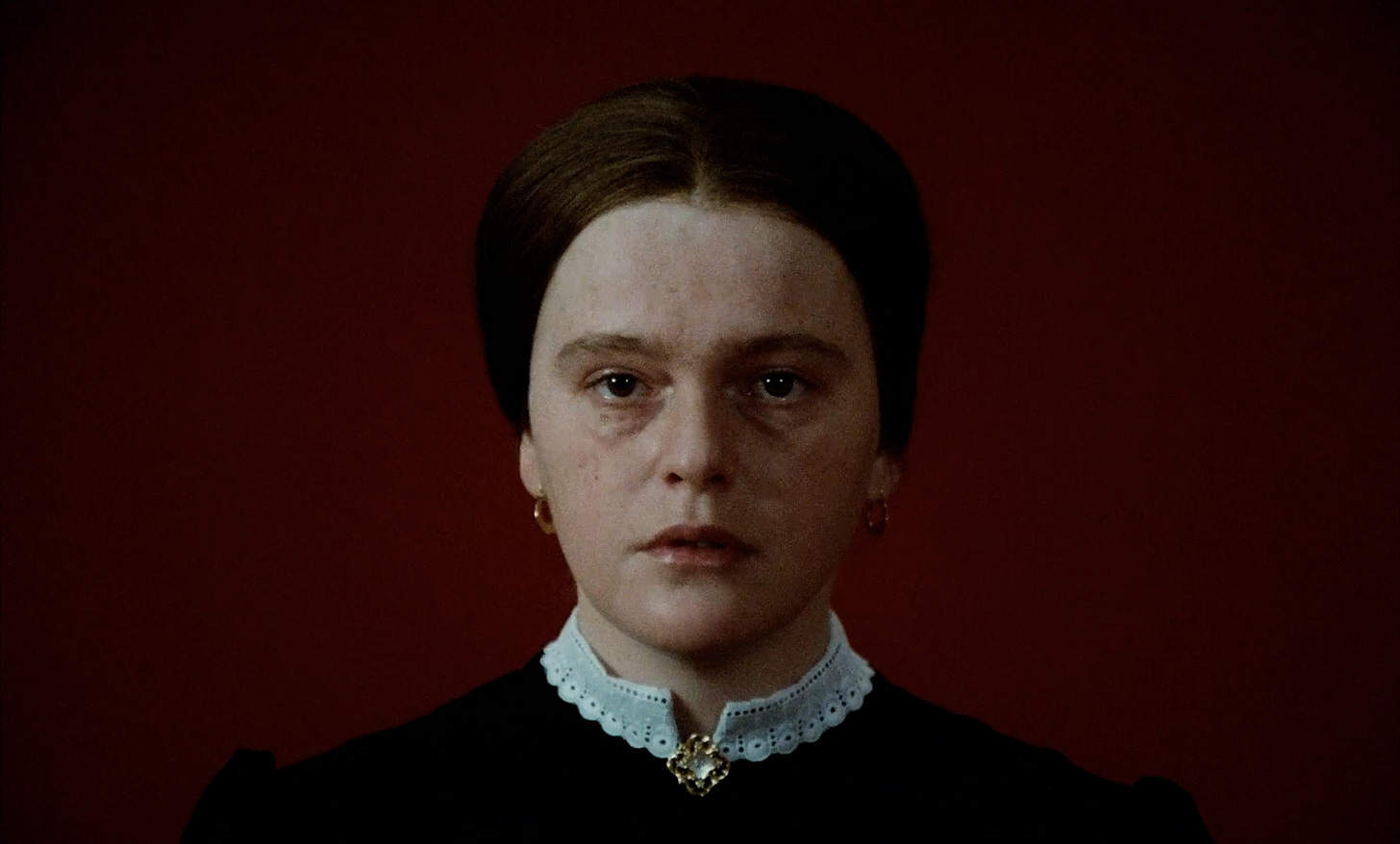A Beginner's Guide to Ingmar Bergman
How to get started with Bergman // On subjectivity and being to young for Persona
My new video is about how Swedish director Ingmar Bergman frames and composes faces on screen. And while this is the element of Bergman's work that I felt would be most interesting to showcase on screen in a video essay- I've been completely captivated by many aspects of his filmmaking over the last year. From the variety of deeply personal, profound issues and topics he explores, to the diversity in his narrative approaches to those topics.
I haven't seen all his films (give me a break there are 69) but I've seen enough now that I think I can offer a quick outline of where I think you should start if you want to explore his films for the first time.
My recommendation would be to start with Persona, The Seventh Seal, and Scenes From A Marriage. I think it’s worth watching all three because they’re all great in my opinion, but even if you hate one or two of these- you might still love the third. These three cover the bases for most of the broader themes of Bergman’s work (psychology, faith, and relationships)- and also showcase the variety in how he approaches his narratives, from more abstract and symbolic, to more vérité. If you don’t like any of these three, I’m not saying there’s not a Bergman film you’ll like and that you should stop trying- but he might not be the filmmaker for you.
After you watch those three- choose your favorite, and expand from there.
If you like The Seventh Seal most thematically, try Winter Light next. If you liked it's period setting, watch The Virgin Spring.
If you like Persona most stylistically, check out Cries and Whispers next. If you were into Persona's themes, check out Through a Glass Darkly or The Silence next.
And if you liked the style of Scenes from a Marriage, watch Autumn Sonata next. If you liked Scenes from a Marriage's subject matter- check out Summer with Monika.
This is absolutely not a comprehensive or complete guide, but hopefully it will give you a starting point for diving into what is a fairly overwhelming and diverse filmography.
Persona Gets Better With Age
The first time I watched Ingmar Bergman's Persona I was too young for the film. I don't mean I was a adolescent sneaking a viewing at an R-rated flick- I just mean that in my early twenties I didn't quite have the life experience, knowledge of film, or maturity needed to really appreciate what the film had to say.
This is something I don't see many critics talk about- how our perception of films can radically change as we age, as time passes, with multiple viewings, or as any number of other variables that surround a work change. But I think it's worth talking about.
To be clear I don't think I shouldn't have watched Persona when I was younger, and I didn't hate it at the time- but re-watching now, a little older, it felt like watching a different film.
This is just one part of the subjectivity of experiencing a specific film. And it's an aspect of experiencing film that I often find puzzlingly absent from the discussion. As a filmgoer, sometimes you won't appreciate something, and it has nothing to do with the actual quality of the film itself. Instead it has everything to do with your relationship to what the film is, or the story the film is telling. Some films are going to tell an interesting story very artfully- and it's just not going to be what resonates with you because of your interests, personality, or where you're currently at in life.
This doesn't mean you need to pretend to love films that don't interest you. But I think an awareness of your own subjectivity in this regard, and an ability or at least attempt to separate "how well a story is being told" from "if you liked that story personally" is necessary for good criticism.
This is something I think we inherently understand about a lot of other mediums. We ask people what their taste in music is, fully recognizing that they may not like a certain genre just because they're not into it, and although there are exceptions, usually people don't write off every style of music they’re not into as garbage.
And yet with film there tends to be a sort of universality implied in the discussion. There's not much nuance in saying "you'll enjoy this film if you..." People obviously have differing tastes in kind of films but for some reason it seems to be a "battle" where everyone asserts that what they like is "objectively the best" and that everyone should like it, and if you don't... well, "you just don't appreciate good movies."
Maybe this culture does exist in other mediums and I just don't see it because I'm not as involved in the discussion, but regardless, I think embracing complexity and subjectivity are a healthier way to engage with a medium and the discussion surrounding it, I think it will give you a more accurate picture of the art itself and how it works.
My appreciation of film has only grown the more I embrace the fact that I like certain things because of who I am, and while I love sharing why I do and don't like certain things and making arguments online for why I certain things aren't enjoyable to me. I don't need anyone else to like the same art I do, and I don't need to assert what I like as the objective best for everyone. I think this should be pretty basic stuff, but it's an attitude that really seems to be absent from large portions of the "film discussion community online" if such a thing can even be labeled. And I think that community would be healthier the more it understood and embraced subjectivity as an element of criticism and discussion.
-TF





I tell my friends… DON’T start with Persona.
My university cinema had a week of Bergman films a few years ago. I went to watch several of them and while I was 20 years old and a lot of the meaning flew over my head, I found Wild Strawberries to be immensely charming and a good “starter” film.
Also, you’ve inspired me to check out Persona again now that my prefrontal cortex has fully developed haha.